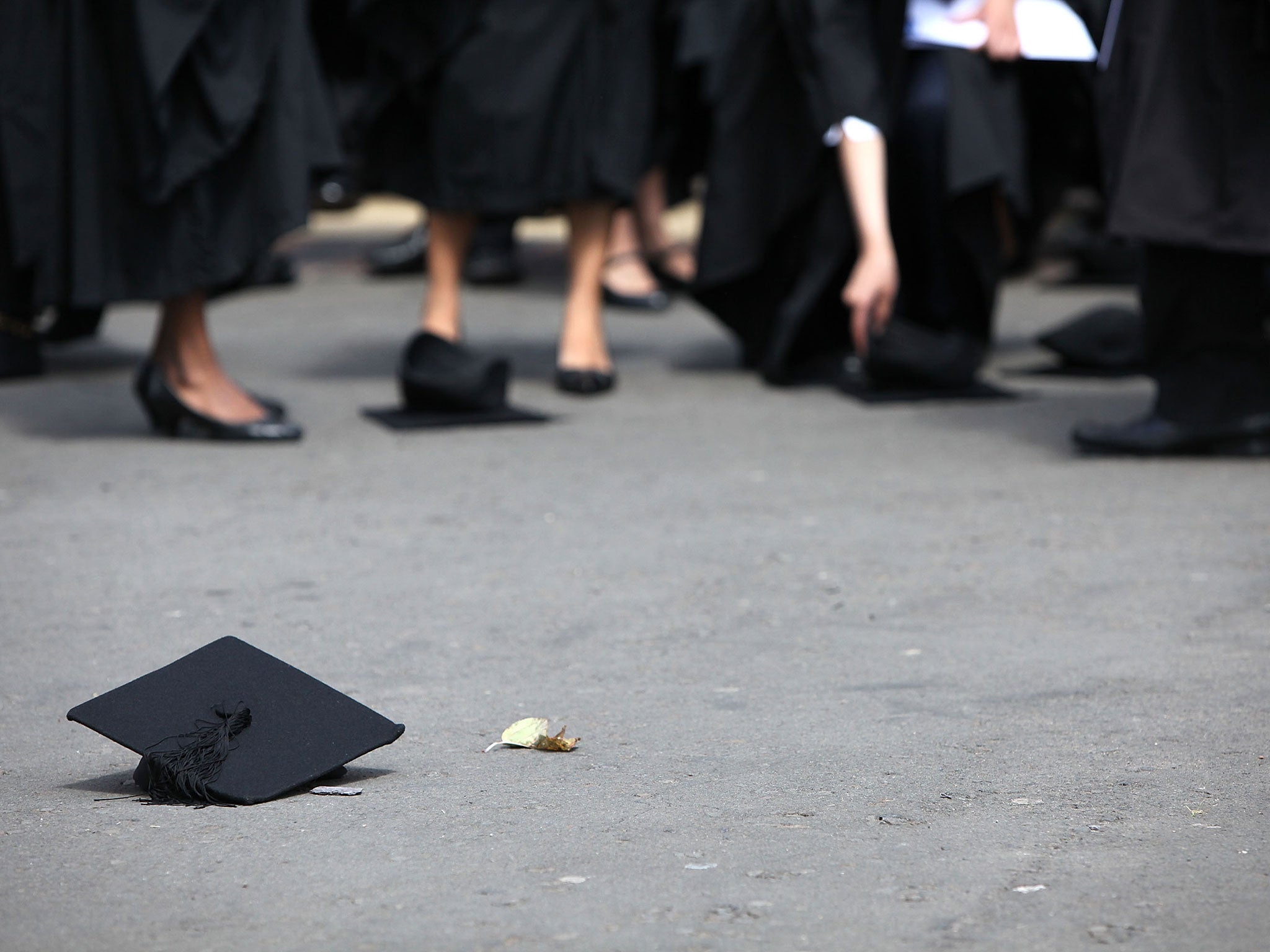Your support helps us to tell the story
From reproductive rights to climate change to Big Tech, The Independent is on the ground when the story is developing. Whether it's investigating the financials of Elon Musk's pro-Trump PAC or producing our latest documentary, 'The A Word', which shines a light on the American women fighting for reproductive rights, we know how important it is to parse out the facts from the messaging.
At such a critical moment in US history, we need reporters on the ground. Your donation allows us to keep sending journalists to speak to both sides of the story.
The Independent is trusted by Americans across the entire political spectrum. And unlike many other quality news outlets, we choose not to lock Americans out of our reporting and analysis with paywalls. We believe quality journalism should be available to everyone, paid for by those who can afford it.
Your support makes all the difference.Students’ satisfaction with their university experience is continuing to fall as concerns over debt rise, according to a major new report.
Satisfaction has continued to fall year-on-year - with the overall rating falling from 7.7/10 in 2014 to 6.9/10 in 2016 - as debt remains a worry for pre-university students, growing from nine per cent in 2013 to 13 per cent in 2014, 19 per cent in 2015, and finally hitting 23 per cent in 2016.
This has followed on from the recent news university tuition fees in England will rise to £9,250 per year from 2017, as maintenance grants for around half a million of England’s poorest students are also axed.
Avoiding debt was the key motivation for not going into higher education, with 56 per cent of those asked citing it as the main reason not to attend.
This year’s report from The Student Room (TSR) also found gender and socio-economic background still have a huge impact on students’ confidence and optimism for the future.
Seventy per cent of those from less privileged backgrounds were less confident about getting a job than those from privileged backgrounds (7.8/10). Male students also feel more confident about getting a job than their female counterparts; 7.3/10 compared to females who rated themselves just 6.9/10 in confidence.
The survey*, the largest of its kind ever run by TSR, looked at school and college leavers’ motivations, the usefulness of information to support the decision-making journey, the impact of university tuition fees and cost of living, and the perceptions of apprenticeships.
There was a significantly large difference in perception about who studies apprenticeships. While the reality is that a roughly equal split of men and women take them up, the research, however, showed 40 per cent of students thought apprenticeships were taken mainly by men compared to just one per cent who thought they were taken mainly by women.
Anxiety about the future was much higher in females than males; only 14 per cent of female respondents said they were very excited about the future compared to 26 per cent of male respondents.
Chris Newson, CEO of TSR, described how no student should feel “they can’t achieve their dream job or further education” He added: “Yet, in 2016, we still find gender and background can set young people at a disadvantage. This is a national scandal and must change.
“We - the education industry - need to continue to work hard to address this challenge head on. TSE fully supports the Department for Education’s drive to reach widening access students, and are ready to work with anyone looking to make a difference in this area.”
When it comes to improving overall university satisfaction, Newson said one thing students say they want is more support getting jobs. He continued: “Universities can help students by building good relationships with employers and supporting their careers and aspirations whilst at university.
“Another big factor in improving university satisfaction is helping students to make the right decision in the first place. Helping them to research their course thoroughly will increase overall satisfaction in the long term.”
Despite the report’s eye-opening findings, on the whole, going to university and getting a degree emerged as still being the most popular option for student participants. Overall, 82 per cent said they would go straight to university following school, more than double the percentage of young people applying for higher education in the UK.
*More than 10,000 students were recruited for the survey and 8,751 gave qualifying responses. Under 16s and non-UK domiciled students were excluded from the survey

Join our commenting forum
Join thought-provoking conversations, follow other Independent readers and see their replies
Comments